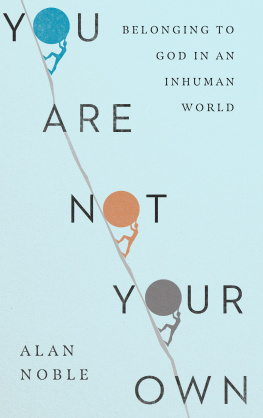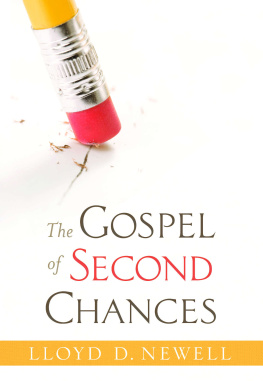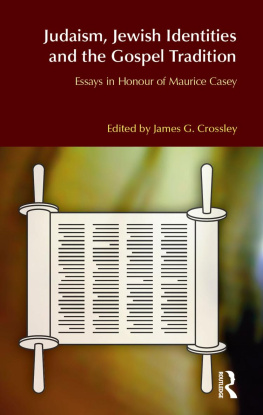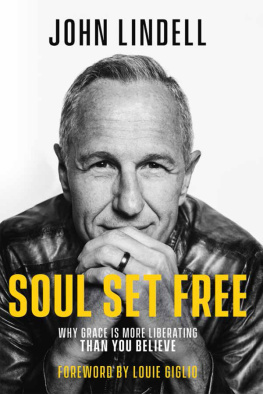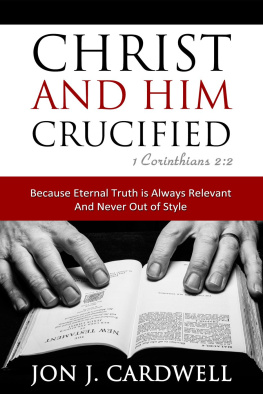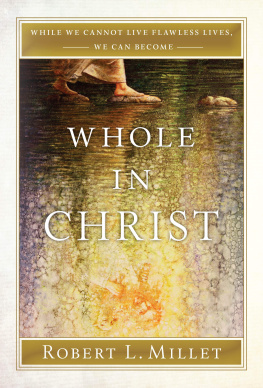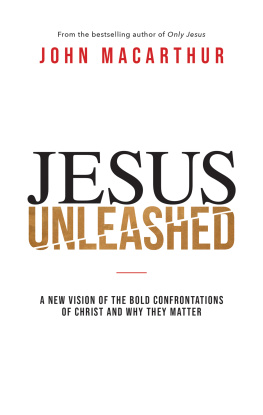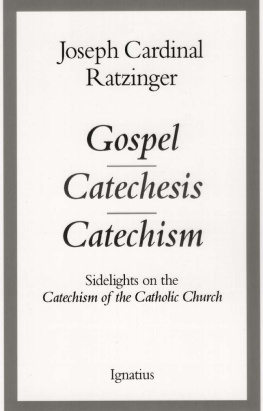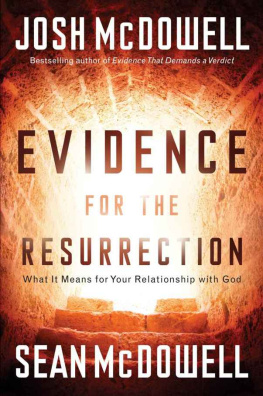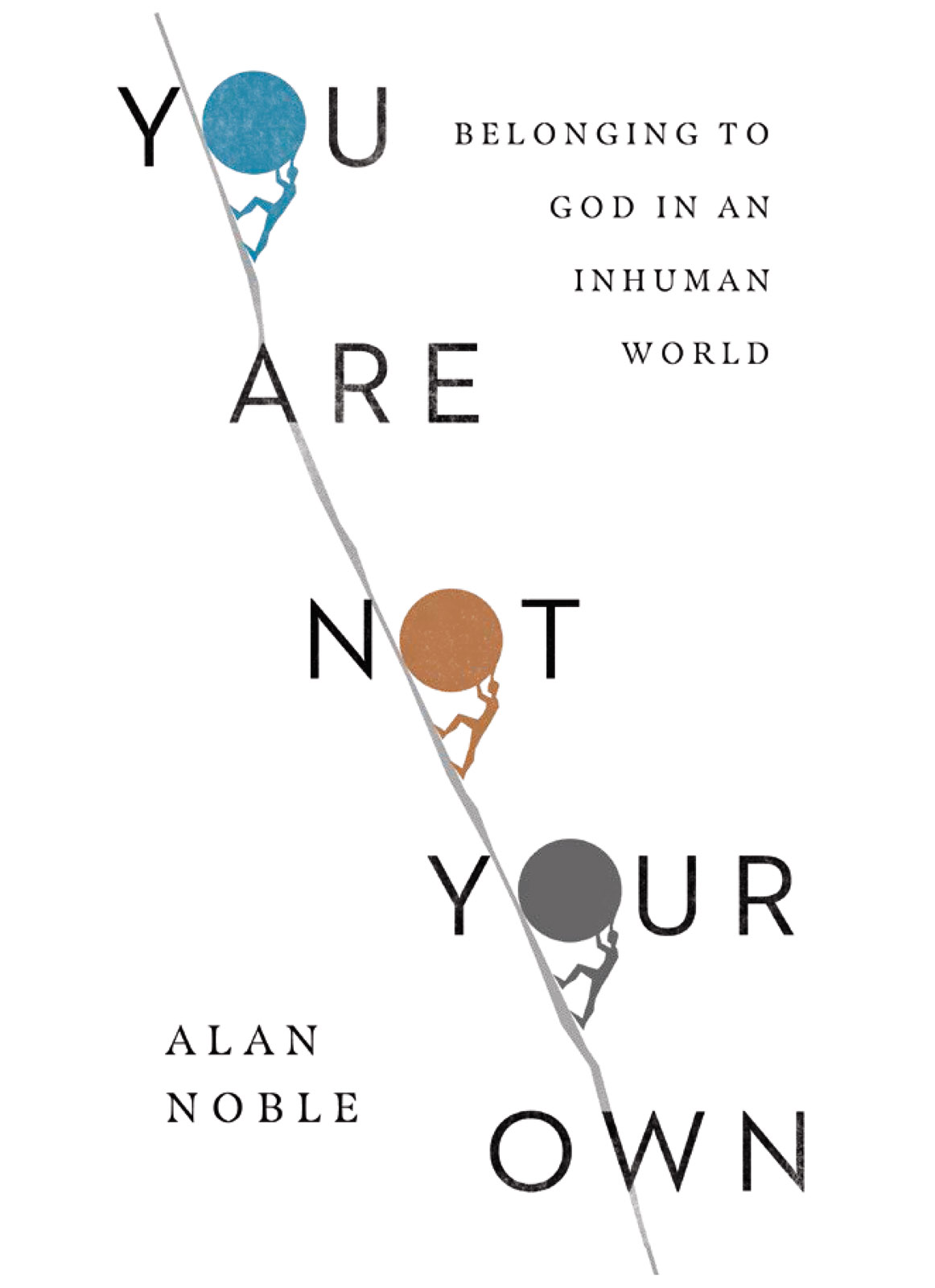All rights reserved. No part of this book may be reproduced in any form without written permission from InterVarsity Press.
InterVarsity Press is the book-publishing division of InterVarsity Christian Fellowship/USA, a movement of students and faculty active on campus at hundreds of universities, colleges, and schools of nursing in the United States of America, and a member movement of the International Fellowship of Evangelical Students. For information about local and regional activities, visit intervarsity.org.
Scripture quotations, unless otherwise noted, are from The Holy Bible, English Standard Version, copyright 2001 by Crossway Bibles, a division of Good News Publishers. Used by permission. All rights reserved.
While any stories in this book are true, some names and identifying information may have been changed to protect the privacy of individuals.
Published in association with the literary agent Don Gates of The Gates Group, http://www.the-gates-group.com
The publisher cannot verify the accuracy or functionality of website URLs used in this book beyond the date of publication.
Introduction
AN INHUMAN CULTURE
A DEFINING FEATURE OF LIFE in the modern West is our awareness of societys inhumanity and our inability to imagine a way out of it. This inhumanity includes everything from abortions, mass shootings, and widespread coverups of sexual abuse to meaningless jobs, broken communities, and TV shows that are only good for numbing our anxiety for thirty minutes.
We werent made to live like this, and most of us know it. But either we dont care, or we dont think we can do anything about it. So, the mode that best describes our day-to-day experience is survival. Ask an honest parent, student, or employee and theyll tell you that their goal for the day is to surviveto get through the day, or make it through. Existence is a thing to be tolerated; time is a burden to be carried. And while there are moments of joy, nobody seems to be actually flourishingexcept on Instagram, which only makes us feel worse.
Strikingly, even as our standard of living in the West continues to rise, our quality of life doesnt. It is possible to make the case that our world is getting better. The dramatic decrease in extreme poverty is one clear example of our world becoming a bit more humane. But life is more than food, and the body more than clothing (Luke 12:23). Often, the very techniques that improve our material lives are the ones that alienate us from each other or from creation. The advances in agriculture that afford us a tremendous variety of food at our table for very little cost also disconnect us from the seasons, the earth, and our neighbors. And so, while our material well-being has improved in some important ways, judged by many of the qualities that truly make life worth living (meaning, relationships, love, purpose, beauty), the modern world is sick. Perhaps we are less physically sick than in the past, but spiritual and mental sickness is still sickness.
If this sounds morose or hyperbolic, bear with me. This isnt going to be a whiny pessimists rant about how terribly unfair the world is, or how we all need to move to farms or return to medieval feudalism to escape the ills of modern life. But we do need some clear-eyed hope.
And if the idea that modern life is basically inhuman sounds ridiculous to you, Id just ask you to suspend your disbelief for a while as we consider some examples of our cultures disorder in the subsequent chapters.
Of course, plenty of people still live lives filled with pleasure and fun and even occasionally real joy. But Id like to suggest that more often than not, our contentment with or optimism about modern life is only sustainable by denying our nature as persons, ignoring the suffering around us, dismissing the consequences of our lifestyles, distracting ourselves from our anxiety, or entertaining misplaced hope that experts will someday soon solve our problems. As Kierkegaard understood, the deepest despair occurs when we are unconscious of being in despair. When we accept how deeply dysfunctional our world is, contentment isnt really an option for us. We can still be grateful to God for His love and grace, but we cant be content with the disorder of our human society.
For Christians, particularly those of us from a tradition with a strong doctrine of depravity, nothing Ive said so far is surprising. Yes, the world is fallen. Sin reigns. People are awful. None of this is new. Ever since the fall, life has been corrupted by sin. But while this is all true, is it possible weve made that an excuse for not rooting out the particular problems of our times? There are specific, deeply embedded ways that sin manifests in our society today, as we shall soon see. Identifying the specific sins of a society has long been the way the church has prophetically challenged culture, from Pauls critique of worshiping an unknown god to Augustines criticisms of luxury in Rome to the Reformation. And confronting these evils will require more (but not less) than opting out of sin individually. Christians have an obligation to promote a human culture, one that reflects the goodness of creation, the uniqueness of human persons as image bearers, and Christs love.
But this book is not a renewed call to the front lines of the culture war. I wont be arguing that we need God in America again, or that everything is going to hell because we took prayer out of schools. In fact, if everyone in America started attending church, I doubt that any of the major issues facing our society would be resolved. Wed probably find ourselves just as unwell and just as burned out. The only real difference is that wed have an evangelical spin to our counseling and our programs of self-improvement. For you see, Christians in America are carriers of contemporary disease too.
Like the rest of western society, the church in the West tends to be good at helping people cope with modern life, but not at undoing the disorder of modern life. Too often the churchs response to deep societal ills has been, Go in peace, be warmed and filled. We offer spiritual self-improvement, prayer, counseling, medication, exercise, discipline, wealth, government aid, charity, educationall of it a Band-Aid, but we leave the disease untouched, or perhaps muted, anesthetized. To the young man struggling with addiction to porn, we offer a thin image of the gospel, self-discipline, and grace (hopefully), but the systemic objectification of bodies, the cultural glorification of sex and romance as a means of existential justification, and the anxieties and inadequacies that often drive porn use go largely unaddressed and even unacknowledged. We just accept as a fact of life that our world is inhuman, and that the human body will be objectified to sell products. We try to teach our young people to cope, and then we lament when they fail.

